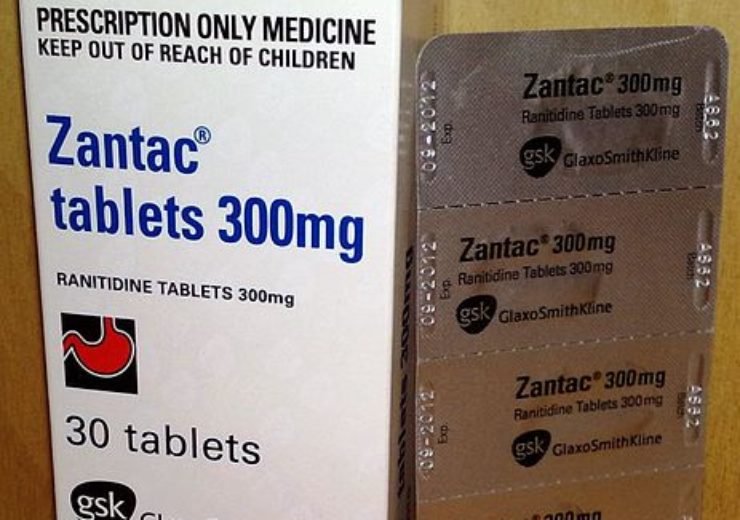FDA advises consumers, patients and health care professionals to withdraw Ranitidine, following the latest studies demonstrating risk to public health

Zantac 300 mg tablets from GlaxoSmithKline (GSK). (Credit: Editor182.)
The US Food and Drug Administration (FDA) has requested manufacturers for the immediate withdrawal of all the prescription and over-the-counter (OTC) ranitidine drugs from the market.
The US regulatory agency’s decision is based on the ongoing investigation of N-Nitrosodimethylamine (NDMA), a contaminant in ranitidine medications (Zantac).
FDA said that the impurity in some ranitidine products would increase with time, when stored at higher than room temperatures and may result in consumer exposure to unacceptable levels of this impurity.
Also, the current immediate market withdrawal request would result in the unavailability of ranitidine products for new or existing prescriptions or OTC use in the US.
FDA Center for Drug Evaluation and Research director Janet Woodcock said: “The FDA is committed to ensuring that the medicines Americans take are safe and effective. We make every effort to investigate potential health risks and provide our recommendations to the public based on the best available science.
“We didn’t observe unacceptable levels of NDMA in many of the samples that we tested. However, since we don’t know how or for how long the product might have been stored, we decided that it should not be available to consumers and patients unless its quality can be assured.
“The FDA will continue our efforts to ensure impurities in other drugs do not exceed acceptable limits so that patients can continue taking medicines without concern.”
FDA advised consumers to stop taking OTC ranitidine, dispose and not buy more
FDA has found the presence NDMA in ranitidine, through independent laboratory testing conducted in 2019. NDMA is thought to be a human carcinogen, which has the potential to cause cancer.
Low levels of NDMA, commonly ingested in the diet, would not lead to an increased risk of cancer. However, sustained higher levels of exposure may pose an increased risk of cancer in humans.
The latest FDA testing confirmed that NDMA levels in ranitidine would increase even under normal storage conditions, and it has been found that NDMA levels increased in samples stored at higher temperatures, and at which the product is distributed and handled by the consumers.
Also, the testing demonstrated that the level of NDMA is higher with the length of time since a ranitidine product was manufactured.
Along with the announcement, the FDA said that it is sending letters to all manufacturers of ranitidine requesting they withdraw their products from the market.
The regulatory agency also advised consumers to stop taking OTC ranitidine and not to use any tablets or liquid with them, disposing of them properly and not buy more; for those who wish to continue treating their condition, they should consider using other approved OTC products.
